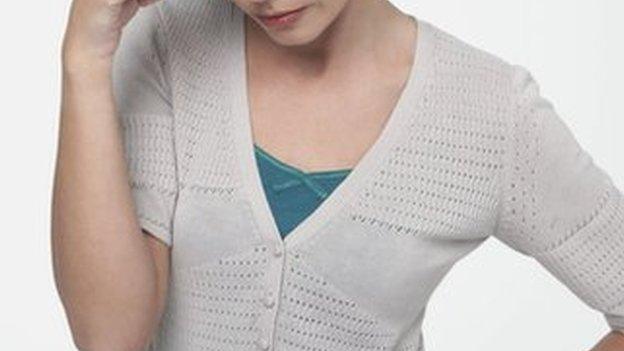Mesh implants 'as dangerous as asbestos' US lawyer tells MSPs
- Published

US lawyer Adam Slater gave evidence to MSPs via videoconference
Vaginal mesh implants are as dangerous as asbestos, MSPs on Holyrood's petitions committee have been told.
They are holding an inquiry into the procedure, used to ease incontinence, after some women experienced painful complications.
Last year, the then Scottish health secretary Alex Neil urged health boards to suspend use of the implants.
Adam Slater, a US compensation lawyer, said "women are not told the truth" about the devices.
He was lead trial counsel in the first pelvic mesh trial against Johnson & Johnson and Ethicon, resulting in a compensatory and punitive damages verdict of $11.1m.
Giving evidence to members of the Scottish Parliament committee via videoconference, Mr Slater said the closest comparison to the mesh implant situation he could think of was asbestos.
He said: "Something that was thought to be a wonderful invention for a long time and now everybody in the world knows it's something you wouldn't want to go near.
"It's the closest analogy I can find to these horrible devices that are now in so many women."

EXPLAINER - Mesh implants

The Scottish Parliament's petitions committee has been hearing evidence on a petition calling for the suspension of the use of medical mesh devices. Find out how the procedure has blighted the lives of some women.

The committee is considering calls to suspend mesh implant operations. Operations continue to be carried out by some health boards despite the health secretary's call to stop using them.
Mr Slater has worked almost exclusively on mesh cases in the US since 2007 and is currently the lead counsel for more than 7,000 cases in New Jersey.
He said some doctors are now refusing to use the devices, with one even branding them a "social cancer".
He told MSPs that studies into the safety of mesh have been influenced by manufacturers, who enjoy a "close relationship" with regulators of the products.
'High risk'
The lawyer said thousands of women in the US are suing both manufacturers and doctors on the grounds that mesh devices are defective or that there was a failure to warn them about the dangers and complications.
The US regulator, the Food and Drug Administration (FDA), indicated last April that it plans to reclassify mesh for pelvic organ prolapse as "high risk", but is yet to do so.
Mr Slater urged UK regulator the Medicine and Healthcare products Regulatory Agency (MHRA) to "look at the studies that are relied on by the mesh manufacturers".
"Most of the studies they rely on are written or investigated by paid consultants," he said.
"I would throw those in the garbage immediately because if somebody is being paid by the manufacturer, there is a financial bias."
He added: "There has never been a high-level study...that has ever been done that has proven the mesh to be safe and effective."
- Published27 January 2015

- Published26 June 2014

- Published17 June 2014

- Published19 December 2016

- Published3 June 2014

- Published11 March 2014
